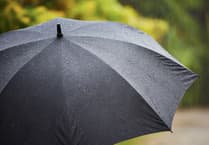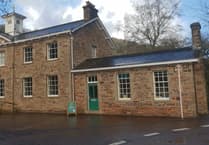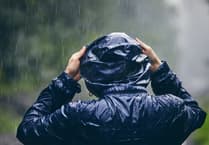THE parent of a West Somerset engineering firm was heavily criticised this week in the final report into the Grenfell Tower disaster of 2017.
Seventy-two people died in the London fire when flammable cladding on the outside of the tower allowed flames to rip through the block of flats.
A public inquiry chaired by Sir Martin Moore-Bick found a number of companies contributed to the disaster ‘in one way or another’.
They included Irish-owned Kingspan Group, a global leader in high performance insulation, which owns Williton-based Deso Engineering, acquired in 2007.
The Grenfell inquiry found Kingspan ‘knowingly created a false market’ for insulation used on the facade of the tower block.
It said Kingspan falsely claimed Kooktherm K15 insulation board successfully passed tests which allowed its use on buildings more than 60 feet tall.
Unknown to Kingspan, K15 was used on about five per cent of the plastic foam insulation of Grenfell’s external cladding during a refurbishment a year earlier because of supply problems with product from rival Celotex, which was specified for the refurbishment.
K15 was fitted behind a plastic-cored aluminium composite material cladding forming an outer layer of the facade.
Evidence showed K15 passed a 2005 fire safety test when placed behind non-combustible cladding, making it suitable only for high-rises with the same system.
But Kingspan marketed it for general use in high-rises such as Grenfell, where the plastic in Arconic-manufactured panels was combustible.
Kingspan emails dating to 2009 were discovered showing staff had been joking among themselves about the K15 tests being flawed.
Sir Martin’s report found both Kingspan and Celotex misled the construction market with claims the insulation boards could be used on high-rise towers.
It said: “As Kingspan knew, K15 could not honestly be sold as suitable for use in the external walls of buildings over 18 metres in height generally, but that is what it succeeded in doing for many years.
“Tests performed in 2007 and 2008 on systems incorporating the then-current form of K15 were disastrous, but Kingspan did not withdraw the product from the market, despite its own concerns about its fire performance.”
Kingspan concealed from officials that the K15 it was selling on the basis of certification in 2008 was different to the product used in the 2005 test.
In 2009, Kingspan also obtained a certificate containing ‘false statements’ about K15 which supported its use generally in tower blocks, using it for many years to sell the insulation panels.
The report said Kingspan made a calculated decision ‘to mask, or distract from, the absence of supporting test evidence’.
A Kingspan spokesperson said this week it had ‘long acknowledged the wholly unacceptable historical failings that occurred in part of our UK insulation business’.
They said: “These were in no way reflective of how we conduct ourselves as a group, then or now.
“While deeply regrettable, they were not found to be causative of the tragedy.
“Kingspan has already emphatically addressed these issues, including the implementation of extensive and externally-verified measures to ensure our conduct and compliance standards are world leading.”




